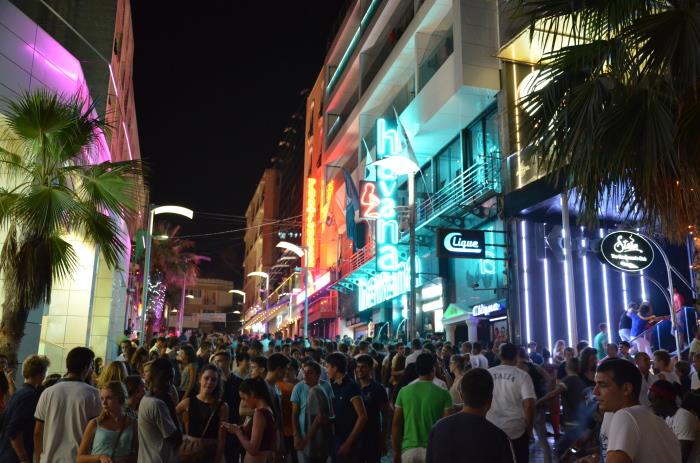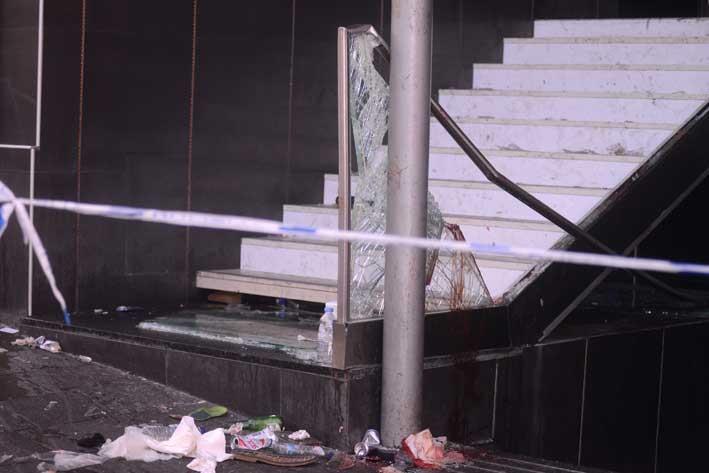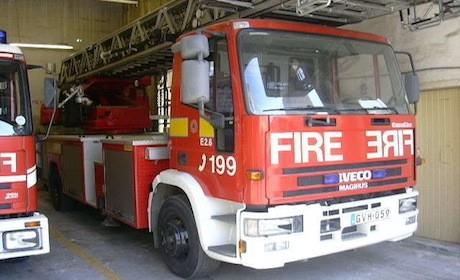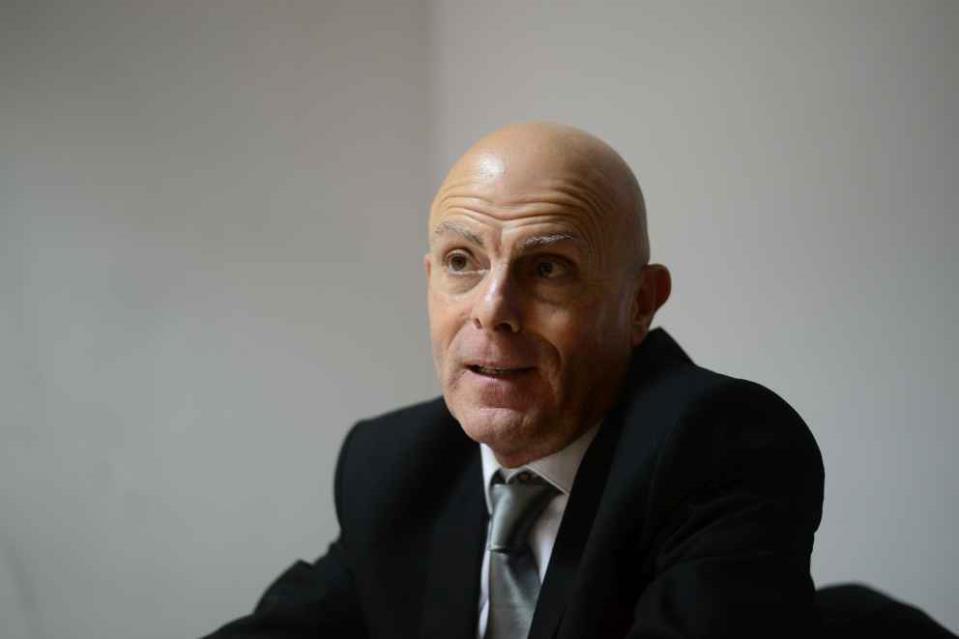Mr Fenech instantly kicked off with talk about the issue of licenses. It was said that there was a list of only six nightclubs in Paceville. Mr Fenech called the whole licensing issue “extremely fragmented”. The two main differences in Paceville are the licenses for nightclubs and the licenses for bars with amplified music, and people seemingly just do not know the difference. My Fenech explained that “In a nightclub, underage youths cannot enter. In a bar they can enter but they can’t be served alcohol.” There is much discussion among the authorities about how to come up with a form of consolidated regime. Mr Fenech talks about the problem starting out with the liberalization of licenses which distorted the clear defined lines between the different types of alcohol-serving establishments.
Compliance and turnover issues in Paceville
“Paceville is suffering from an element of unfair competition” because of all the measures being taken with the entertainment hub in the centre of all of it. At the same time, Mr Fenech does not want to shy away from the fact that there are certain legal issues that must be addressed. You have “police, vice squad and then they go in to check cigarettes, then they go in to check the sound, to lower the sound, and then they’ll go in to check underage.” This is, in turn “creating a lot of commotion.”

Apart from a lack of the usual Italian and Sicilian crowd, which Mr Fenech suspects is due to the economic situation in Italy, there are other places around Malta that people are preferring over Paceville. It also results that a lot of people are organizing private parties. In fact, reports show an influx of people attending Paceville at two o’clock which, according to Mr Fenech “showed that these people who stayed in would have drunk, eaten and everything, and after they spoke all they had to speak, they still wanted to hit town because it gets boring inside anyway.” This lends to a loss of a number of hours of sales.
Reaction to PlusOne incident
A meeting for all commercially active entrepreneurs in Malta and Gozo was called along with MTA CEO Paul Bugeja, and David Mifsud who looks after compliance on licensing. Here the law was explained to all people present regarding issues like fire evacuation. The older ones, according to Mr Fenech, were not aware of certain procedures. “What we did was explain to them what they should have, even other basics like the fire exit signs, obviously the extinguishers being serviced every year, and all these basic things.”

This was done to preempt the reaction to the incident by the authorities. One analysis made was to check compliance certificates with every license renewal rather than just taking an annual payment, which would stop authorities “playing hide and seek.”
The concept of self-regulation
Mr Fenech is hopeful that the incident itself will serve as a wake-up call for many entrepreneurs in the leisure industry, lending to a new wave of self-regulation. “I believe in self-regulation. There’s nothing better than it.” Of course, there will always be criticism of the concept with some claiming that self-regulation will lead to a large amount of abuse. Mr Fenech, however, remains hopeful that people are aware of their responsibilities. “They know what responsibility they have when there are all those crowds and hopefully this incident will be of an eye-opener. As I always like to say, we have to be prepared, like the Boy Scouts.” In another meeting with Home Affairs Minister Carmelo Abela security issues both in the case of Paceville and the leisure industry in general were discussed.

According to Mr Fenech “the authorities reacted positively” by sending a fire engine from the Civil Protection Unit during weekends and the festive season. Stationed near ITS, this was close enough to the centre, but not directly in the middle of things. There was also an ambulance on standby for serious cases and the Red Cross help to deal with smaller issues.
Who is responsible?
Mr Fenech highlighted two scenarios where the entrepreneurs are not necessarily the ones responsible for illegalities. “When we employ a security company or we employ people at the door and give them certain orders, if they disobey those orders, should you be responsible? No!” There have also been scenarios when parents have been seen coming for their children at two and three in the morning. So now, parents should also to be held responsible for their children getting into clubs illegally. Unfortunately, there are other ways that underage children are attempting to break the rules. Examples Mr Fenech gave included friend who have a one-year age-gap “they’re on the same bench at school”, as Mr Fenech puts it.

“So their friends could potentially be supplying them alcohol, buying from bottle shops and drinking in the streets, so there we have a problem.” One must also understand that security personnel cannot shoulder all responsibilities at the same time, he said. “They need to tend to the doors, check whether people are taking drugs in the toilet, check whether people are smoking in the toilets”; and many other issues that may arise.
Ideas for new security measures
Exploiting the fact that ID cards all have a microchip in them, Mr Fenech explained a new security idea “where we could scan the ID card and it will light a red bulb if they are under 17.” When faced with the issue of capacity, after ensuring that the establishment does, in fact, have a sign indicating maximum capacity, police nowadays have to do a headcount, which is less than accurate. Another new idea is “a screen that would indicate the number of people that walk in and out, then all the police would have to do is walk in and check that what is read is not, in any way, abstract to what there is in there.”
The new penalties
“The fines are now exorbitant the way they went up and the reason is, although I understand government wanted to send a very stong signal, at the same time it is very impossible and very painful for establishments.”

Mr Fenech’s reason for this critique is the fact that there is no way that a club can make up for paying the fine for five people in one average night of sales. He said, with full certainty, that the amount of money an average sized club makes in one night, including VAT, is completely superseded by the amount they will have to pay for five violations. “You have to pay your rent, your electricity, your staff; it’s like mission impossible.” Mr Fenech also brought up the idea of proportions, implying that it is very easy to criticize a club holding 1,000 for having 30 or so violations, but smaller venues such as political clubs, band clubs and local village bars are neglected by the authorities. He commented on such a lack of compliance to regulations that “even ashtrays are provided [indoors] in certain extreme cases.” Mr Fenech calls for a more realistic approach where if the old fine of €233 were raised to €500, “it would have politically given the right signal, and socially it would have still been a strong deterrent, still very tough on the owners.”
An alternative for the underage
The fact of the matter, according to Mr Fenech, is that teens are discovering everything from their own sexuality to new love for life and music. “The reality is we have youths that want to dance and we need to create some sort of activity.” Here the concept of ‘delicensing’ is mentioned where one can delicense a place by applying at MTA for a license and subsequently taking away all alcoholic bottles from the shelves, as well as all alcohol advertising and then one can have underage youths in the establishment.

“About 10-15 years ago there was a system where you had part one and part two. Until 10pm or10.30 pm, you would have the underage kids in the discotheques and following that, there would be a cooling off period when the place would be emptied from the youngsters, and then it would be opened for normal business for adults.” Discussions are currently underway to possibly restart this trend.
The future of Paceville
The new Tourism Zone Management Committee, which is run by the Foundation for Tourism Zone Management, which Mr Fenech sits on, discusses security and other issues concerning touristic zones including, but not limited to Paceville. “We can no longer remain as complacent as we usually are with how we manage these things; we need to become more professional.” This includes cleanliness because, “for someone to respect an area, the area has to be respectable.” Apart from that, maintenance should also be carried out in immediate time, “not as it is now where it takes too much time, otherwise it will look derelict.” There are also talks of having constant, on-site, ‘Tourist Policemen’ who can tackle any and all issues on the spot, in collaboration with existing authoritative bodies.